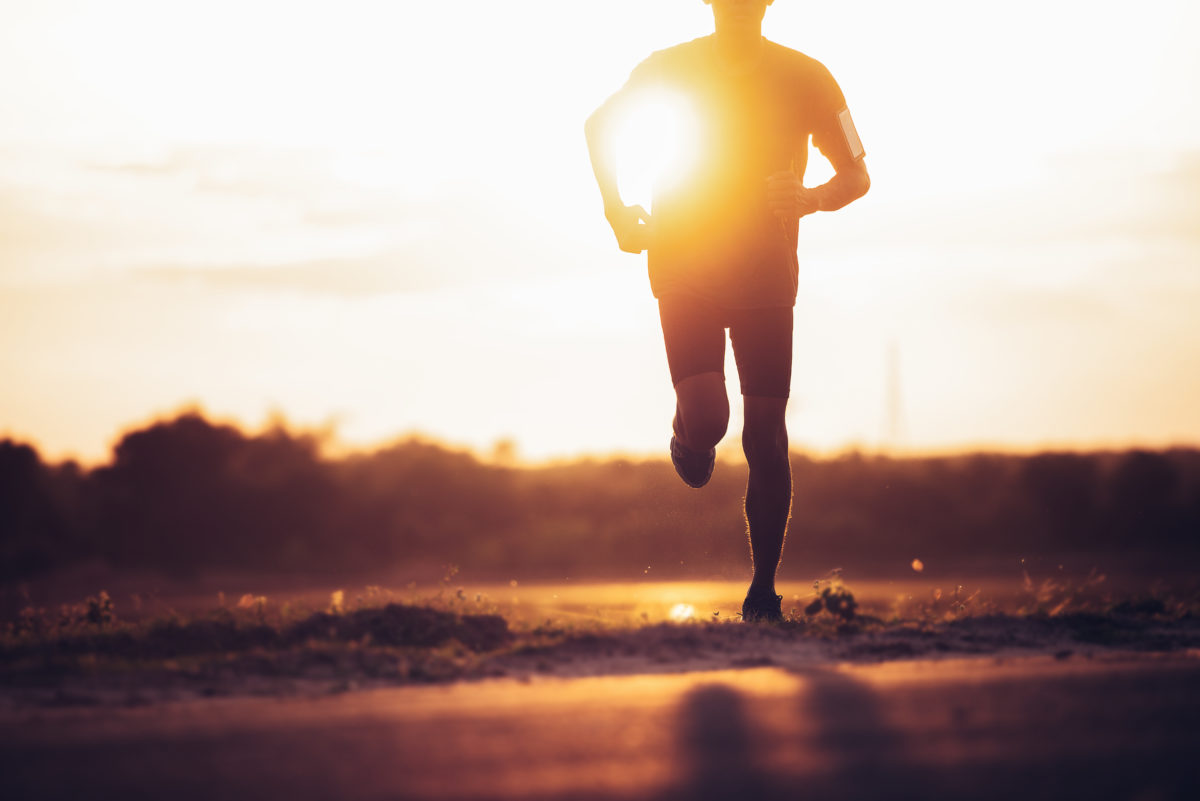
A useful point to start from in assessing tea’s energizing value is athletes and their coaches. They work together to boost performance, minimize injury and health risk, and conform to very strict regulations on use of nutritional aids and pharmaceuticals. Of course, not all stay within the limits of legality and safety and drug abuse is a problem in every sport. But for the casual athlete and responsible coach, the regimen for energy beverages is well-understood and beneficial.
Here are general research findings that also capture reported experiences:
- The combination of catechins and caffeine in tea boosts metabolism and speeds up the conversion of food to the energy they need at the start of activity. Catechins are the rich collection of compounds that are most associated with tea’s contributions to wellness. They have a fast, though short-lived, impact on fat oxidation (catechins) and fat melting (caffeine).
- A review of 24 published reports on strength and conditioning concludes that overall, a moderate caffeine intake is “pretty effective” in performance enhancement. An explanation is that it spares glycogen for a late-race push. Unlike the faster and higher jolt from coffee, caffeine in tea provides longer-lasting energy without a crash. Matcha was singled out as the best choice here.
- One study provides strong evidence that regular consumption of black tea delays muscle soreness from anaerobic exercise, speeding up recovery.
- Another reliably shows that tea-drinking athletes burned up 15% more calories for a full three hours after exercise than did ones given a placebo.
Tea: A Fine Energizer
The calming and soothing side of tea is well-established. Its benefits as a boost to mental alertness and physical performance often get discounted. Part of this is that almost all of these are caffeine-related. The wellness perspective on tea has tended to see caffeine as, if not villainous, then to be avoided or tolerated but not sought after. In fact, caffeine offers many health benefits, with the caveat that it is sensible to limit consumption to around 300 milligrams a day. That amounts to over a dozen cups of green tea and half that of black, versus three coffees. Caffeine should be avoided by pregnant women and those with special medical concerns. There is growing evidence, too, that a specific gene alle A2AR affects caffeine tolerance and impact.
All that said, the overwhelming scientific evidence shows caffeine as safe for most of the population. Treat it as just one of the characteristics of tea that make it special for both your enjoyment and well-being. It is a fine energizer and much, much safer than many energy drinks that create a very fast and short-lived jolt from too much caffeine and sugar. Those can easily generate side effects of nausea, dizziness, palpitations and, for many people, anxiety.
Caffeine’s Correlation with Memory
Caffeine’s value in mental athletics is equally well-signposted: alertness, memorization concentration and problem-solving. Examples are:
- Caffeine provides a 45-minute or so mental boost and enhances memories for a day beyond comparison groups that are caffeine-free.
- 5,000 subjects tested at regular intervals over a decade showed a consistent reduction in cognitive decline among women but not men: attention, alertness and speed in information processing.
- Consuming 200 mg of caffeine daily correlates with improved long-term memory.

And, of course, caffeine keeps you awake. This is its most noted impact that can be an energizing virtue as well as a disruptive danger. The mechanism is well-understood. Caffeine works at the cellular level to block adenosine receptors, neurons that regulate calmness and relaxation. Adenosine accumulates in the brain the longer you are awake. That’s what makes you feel tired. When you sleep, your brain metabolizes all this. That’s what makes sleep restorative.
One of the most striking and fully documented analyses of the adenosine/waking affect is Unilever’s success in its health claim application to the European Food and Safety Authority. The Unilever statement is simple: “Owing to its caffeine content, black tea improves attention.” It laid out how this works. The molecular structure of caffeine is like adenosine, a central nervous systems neuromodulator. When adenosine binds to its molecular receptors, this slows neural activity in the brain’s striatum, a cluster of neurons in the forebrain. The striatum coordinates many aspects of cognition.

The Gentler Energizer
Caffeine binds to the same receptors, blocking the binding of adenosine and thus its lessening of alertness. It also affects dopaminergic excitative neurotransmitter pathways that manage attention. The studies supporting the claim used human subjects and controlled for conditions of use, such as time of the tea serving, amount and cumulative intake. An EFSA working group panel of experts laid out conditions of use questions to complement the Unilever “hard” science. This fine-tuning established that the health claim was substantiated by an accumulation of 1,040 milligrams of tea solids, consumed within a period of 90 minutes and delivering at least 90 mg of caffeine and 36 mg of l-theanine (the amino acid commonly found in tea leaves.)
So, if you want a pick me up, tea is hard to improve on. It is a gentler energizer than coffee, brings extra natural beneficial nutrients, is free of sugar, artificial stimulants and offers a range of flavors, which in itself can sharpen the senses and waken the metabolism. And, of course, tea comes in hot and cold form: maybe iced for the gym and hot for the all-night late homework catch up.
Click here to see all the articles in the Health & Wellness Issue
